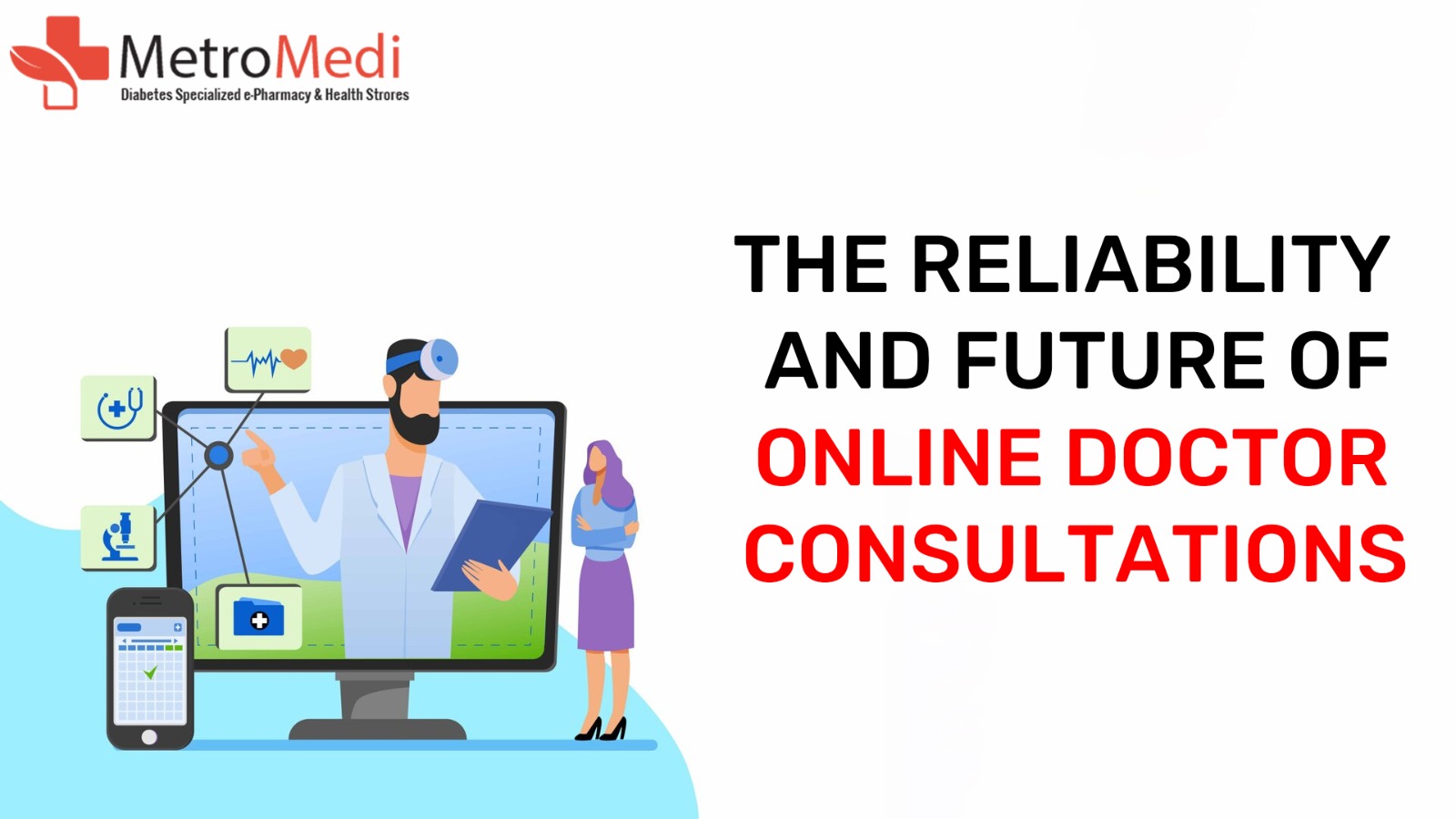The Reliability and Future of Online Doctor Consultations
Introduction
In recent years, the landscape of healthcare has undergone a transformative shift with the advent of technology. One notable advancement that has gained significant traction is the rise of online doctor consultations. The traditional model of visiting a doctor’s office is gradually being replaced by virtual appointments, allowing patients to seek medical advice from the comfort of their homes. This shift has been especially pronounced in the wake of the COVID-19 pandemic, which accelerated the adoption of telemedicine. In this blog post, we will explore the reliability of online doctor consultations, their current status, and the potential future developments in this rapidly evolving field.

Reliability of Online Doctor Consultations
One of the primary concerns surrounding online doctor consultations is the reliability of the medical advice provided. Critics argue that remote consultations may lack the personalized touch and in-person examination that traditional visits offer. However, numerous studies and real-world implementations have demonstrated the effectiveness and reliability of online consultations.
Telemedicine platforms utilize various communication tools, including video calls, audio calls, and chat interfaces, to connect patients with licensed healthcare professionals. During these virtual appointments, doctors can inquire about symptoms, review medical histories, and provide accurate diagnoses. Research has shown that online consultations are particularly effective for managing chronic conditions, follow-up visits, and minor illnesses.
Moreover, advancements in technology, such as high-quality video calls and wearable devices, have enhanced the ability of healthcare professionals to remotely monitor patients’ vital signs and assess their overall well-being. This integration of technology not only improves the reliability of online consultations but also allows for more comprehensive and data-driven healthcare.
Patient Satisfaction and Accessibility
One of the significant advantages of online doctor consultations is the high level of patient satisfaction. Patients appreciate the convenience and accessibility offered by telemedicine, especially for non-emergency situations. Online consultations eliminate the need for travel and reduce waiting times, making healthcare more accessible to individuals with mobility issues, those in remote areas, or those with busy schedules.
Furthermore, the ability to connect with a doctor from anywhere in the world enhances the overall accessibility of healthcare services. This is particularly beneficial in areas with a shortage of healthcare professionals, as it allows patients to access specialized care without the need to travel long distances.
The Future of Online Doctor Consultations
As technology continues to evolve, the future of online doctor consultations looks promising. Several trends and developments are likely to shape the landscape of telemedicine in the coming years.
- Integration of Artificial Intelligence (AI): AI is poised to play a significant role in the future of online doctor consultations. Machine learning algorithms can analyze vast amounts of medical data to assist healthcare professionals in making more accurate diagnoses and treatment recommendations. AI-powered chatbots may also become more sophisticated in providing initial assessments and guidance to patients.
- Remote Monitoring and Wearable Technology: The integration of wearable devices and remote monitoring tools allows for continuous tracking of patients’ health metrics. This real-time data can be shared with healthcare providers during online consultations, enabling a more comprehensive understanding of the patient’s condition. This trend is particularly relevant for managing chronic diseases and promoting preventive care.
- Expanded Specialized Services: Online consultations have the potential to bridge the gap in access to specialized medical services. Patients in underserved areas can benefit from virtual appointments with specialists who may not be physically present in their region. This expansion of specialized services contributes to a more equitable distribution of healthcare resources.
- Enhanced Security and Privacy Measures: As the reliance on telemedicine grows, there will be an increased focus on ensuring the security and privacy of patient data. Future developments may include advanced encryption methods, secure communication platforms, and stringent compliance with data protection regulations to safeguard patient information.
- Telemedicine in Mental Health: The field of mental health is experiencing a particularly significant shift towards online consultations. Telepsychiatry and virtual therapy sessions have proven to be effective in providing mental health support, especially during times of crisis. The future is likely to see further integration of telemedicine in mental health services, with an emphasis on accessibility and destigmatization.
Challenges and Considerations
While the future of online doctor consultations holds immense promise, there are challenges and considerations that must be addressed for widespread adoption and acceptance.
- Digital Divide: The digital divide remains a significant barrier to the widespread adoption of online consultations. Not all individuals have access to reliable internet connections or the necessary devices to participate in virtual appointments. Efforts must be made to address this disparity and ensure that telemedicine is accessible to all.
- Regulatory Frameworks: The regulatory landscape for telemedicine varies globally and within different regions. Establishing clear and standardized regulatory frameworks is crucial to ensure the quality and safety of online consultations. Governments and healthcare authorities need to collaborate to develop guidelines that promote innovation while safeguarding patient welfare.
- Patient Education: As online doctor consultations become more prevalent, there is a need for comprehensive patient education. Many individuals may be unfamiliar with the telemedicine process or harbor concerns about the reliability of virtual healthcare. Educating patients about the benefits and limitations of online consultations is essential for building trust and fostering widespread acceptance.
Conclusion
The reliability and future of online doctor consultations are intricately linked to technological advancements, regulatory frameworks, and societal acceptance. While challenges exist, the benefits of telemedicine in terms of accessibility, convenience, and efficiency are undeniable. As technology continues to evolve, the healthcare landscape is poised for a paradigm shift towards more widespread and integrated use of online consultations. The future holds the promise of a healthcare system that seamlessly combines the best of in-person and virtual care, ultimately improving patient outcomes and enhancing the overall quality of healthcare delivery.
Best Online Medicine Supplier in Hyderabad.
